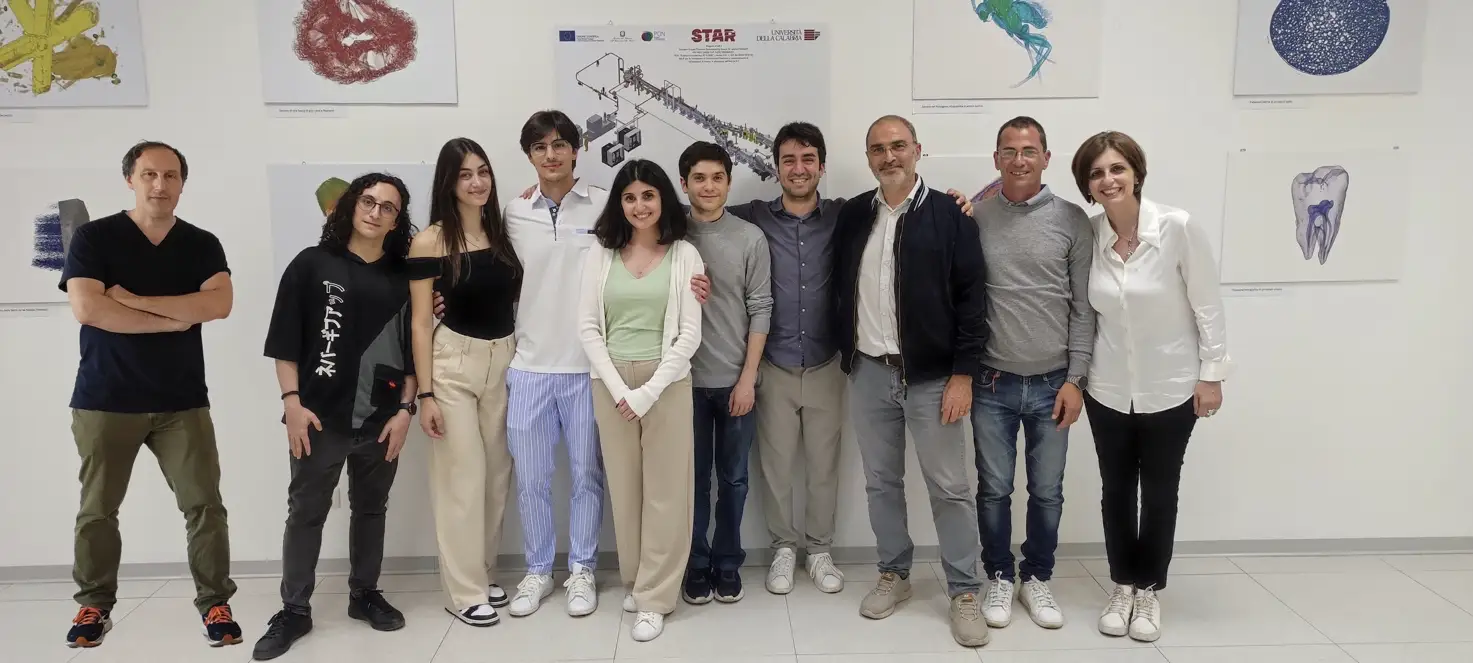LSAM – Advanced Spectroscopy and Microscopy Lab

The researchers at LSAM study the physical and chemical phenomena and processes occurring at the atomic, nanometric, and micrometric scale on material surfaces.
The experiments are conducted within an Ultra-High Vacuum (UHV) chamber system, that hosts a Scanning Tunneling Microscope (STM). This microscope allows for the reconstruction of surface topography with atomic resolution, reaching the scale of a tenth of a billionth of a meter. Additionally, the microscope can operate in non-contact mode as an Atomic Force Microscope (AFM).
The crystalline surfaces used in ultra-high vacuum experiments are made as planar as possible by removing or rearranging the "disordered" atoms of the outermost layer through a process known as sputtering (ion bombardment). The samples are then recrystallized to their original form through a specific thermal treatment called annealing. Thin layers are subsequently deposited on these surfaces via evaporation to observe the arrangement of individual deposited molecules or atoms.
The most recent studies conducted at LSAM (and published in Langmuir and Nanotechnology) have revealed that certain molecules of interest in energy conversion processes (such as photovoltaics) tend to migrate and rearrange themselves into well-defined domains with energetically favorable boundaries, depending on the bonds formed between the molecules and the substrate.
The instrumentation at LSAM currently consists of an Ultra-High Vacuum (UHV) chamber system equipped with a Specs GmbH Aarhus 150 with Nanonis electronics for Scanning Tunneling and non-contact Atomic Force microscopy (STM/nc-AFM). The system is composed of:
– A rapid sample insertion chamber
– A preparation chamber (for heating and ion erosion using argon)
– An analysis chamber with ports for standard ultra-high vacuum instrumentation
– Pumping systems, including primary pumps, turbomolecular pumps, and an ion pump (with ultimate pressures reaching 5×10⁻¹⁰ mbar), along with pressure gauges
At present, new instrumentation is being acquired to enhance the spectroscopic capabilities of the setup and to investigate the physical and chemical properties of more complex systems (such as rough films and structured materials on various scales) that are challenging to analyze using STM. Following the upgrade, the system will include:
– A monochromatic X-ray source
– A UV source
– A hemispherical electron analyzer
– Ion beam erosion equipment for depth profiling studies
The LSAM is open to research activities conducted by researchers from Unical, Italian universities, and research centers in Italy and abroad. Its goal is to provide the user community with a wide range of services for microscopic characterization and surface spectroscopy of materials.
Following the enhancement of the instrumentation, access to the laboratory will be granted through calls for proposals, which will be evaluated by an external scientific committee, similar to the access procedures of other IR STAR laboratories.
| Service | Description |
| SPM-STM analysis |
|
| Surface Preparations |
|
| Molecular Depositions |
|
| XPS-UV-AES analysis |
|
Service Laboratories
- LCM – Material Characterization Lab
- LMSV – Modeling Simulation and Visualization Lab
- LPCB – Biological Sample Preparation Lab
- LPF – Physical Prototyping Lab
- LPM – Material Preparation Lab



